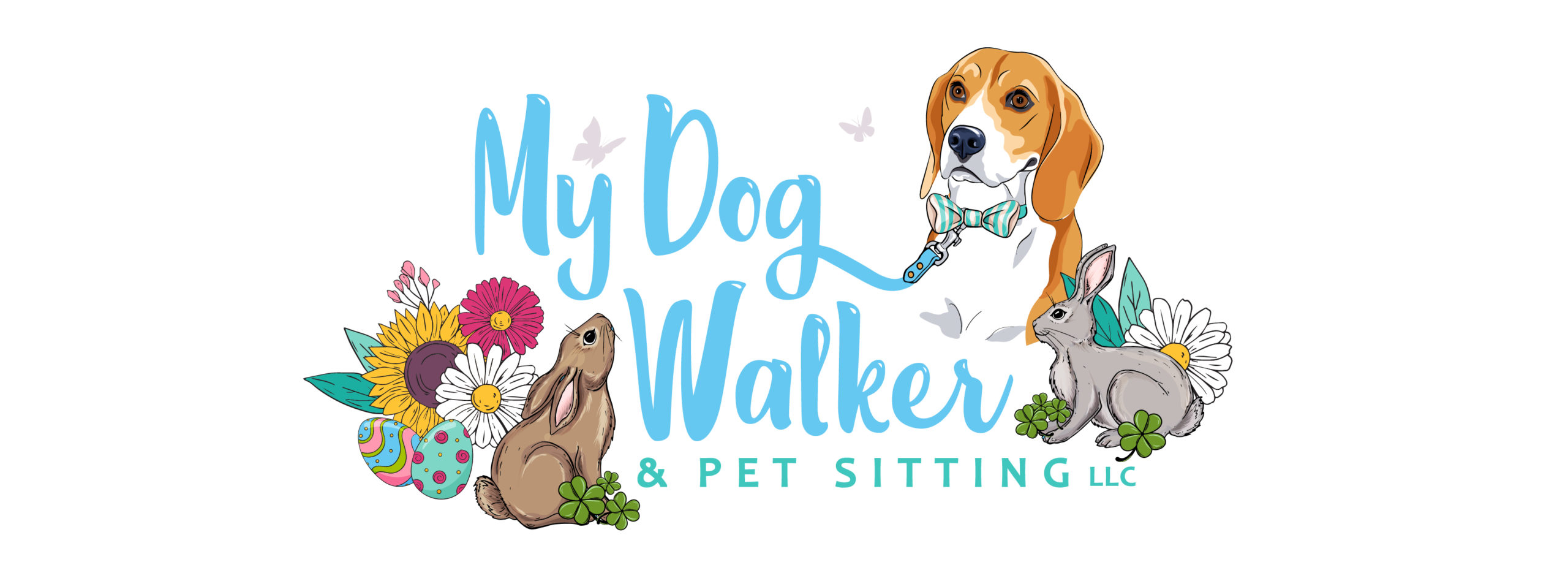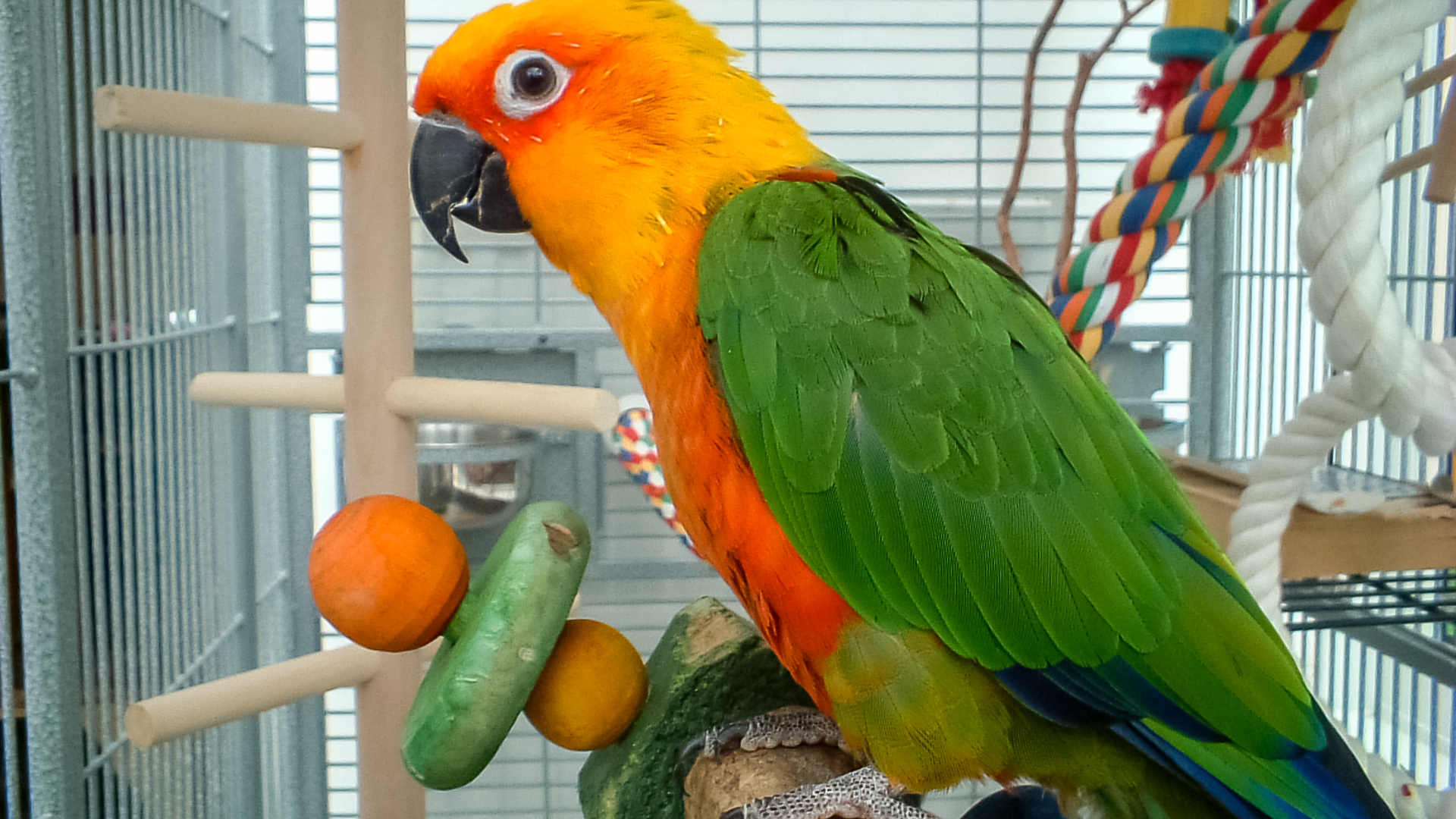
Discussing The Best Methods And Practices For Caring For Senior Birds
Caring for a senior bird is a rewarding experience that requires special attention and understanding. As birds age, their needs change, and providing the right care can help them live a comfortable and happy life. Whether you have a parrot, canary, or cockatiel, here’s a guide on how to care for your feathered friend during their golden years.
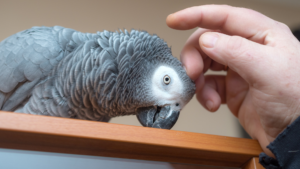
1. Understand The Signs Of Aging
Birds may not show obvious signs of aging, but there are subtle changes to watch for:
Reduced Activity: Older birds may become less active and prefer resting more often.
Changes In Appearance: Look for duller feathers, weight loss, or changes in beak and nail growth.
Behavioral Shifts: A senior bird might become less social or exhibit changes in vocalization.
2. Adjust Their Diet
Senior birds often need a diet that is easier to digest and provides the necessary nutrients to support their aging bodies:
High-Quality Pellets: Choose pellets designed for senior birds, which are formulated to meet their specific nutritional needs.
Fresh Fruits And Vegetables: Incorporate a variety of fresh produce, but ensure they are soft and easy to chew. For a more comprehensive guide on what fruits and vegetables are safe for birds, click here.
Calcium And Vitamin Supplements: Older birds might require additional calcium and vitamins to maintain bone health and overall vitality. Always consult with your veterinarian first to determine what supplements are best for your feathery friend.
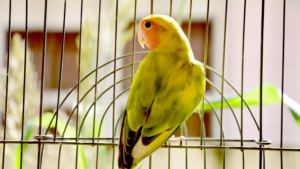
3. Modify Their Living Environment
Creating a safe and comfortable environment is crucial for senior birds:
Easy Access Perches: Provide perches that are easier for them to grip and move around on. Consider adding more perches at varying heights to accommodate limited mobility.
Soft Bedding: Line the bottom of the cage with soft, absorbent materials to cushion any falls and make standing more comfortable.
Temperature Control: Older birds are more sensitive to temperature fluctuations. Keep their environment warm and draft-free, especially during colder months.
4. Regular Veterinary Checkups
Routine veterinary visits are essential for monitoring the health of senior birds:
Annual Exams: Schedule at least one checkup per year to catch any potential health issues early.
Weight Monitoring: Keep an eye on your bird’s weight, as sudden changes can indicate underlying health problems.
Dental and Beak Care: Ensure your bird’s beak and nails are trimmed regularly to prevent overgrowth and discomfort.
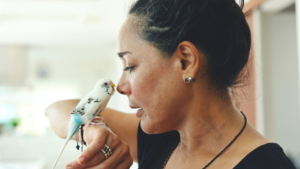
5. Promote Mental and Physical Stimulation
Even in their senior years, birds need mental and physical stimulation to stay healthy and happy:
Gentle Playtime: Engage in gentle play sessions with toys that are easy for them to handle.
Social Interaction: Spend quality time with your bird daily, offering affection and conversation to keep them socially engaged.
Enrichment Activities: Rotate toys and provide foraging opportunities to keep their minds active.
6. Monitor for Common Health Issues
Older birds are prone to certain health conditions, so it’s important to be vigilant:
Arthritis: Watch for signs of stiffness or difficulty perching, which could indicate arthritis.
Respiratory Issues: Senior birds may develop respiratory problems, so keep an eye out for labored breathing or nasal discharge.
Cataracts: Vision changes, such as cataracts, are common in older birds and may require adjustments in their environment.
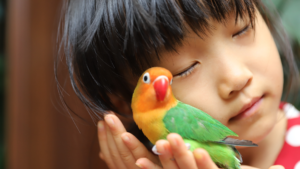
7. Provide Extra Comfort and Care
As your bird ages, they may appreciate a little extra comfort:
Extra Warmth: Consider a bird-safe heating pad or a cozy spot in their cage where they can retreat.
Hand-Feeding: If your bird has trouble eating, you may need to assist with hand-feeding or offering soft, easy-to-digest foods.
Gentle Grooming: Help with grooming if your bird struggles to preen themselves, ensuring their feathers stay clean and healthy.
The Big Picture
Caring for a senior bird requires patience, love, and a keen eye for their changing needs. By making thoughtful adjustments to their diet, environment, and routine, you can help your feathered friend enjoy their senior years in comfort and happiness. Remember, regular veterinary care and plenty of affection will go a long way in ensuring your bird’s well-being. Your senior bird has been a cherished companion, and with the right care, they can continue to bring joy to your life for years to come.

Hire A Pet Sitter & Dog Walker Today!
If you or someone you know is looking for a pet sitter or dog walker, then look no further than My Dog Walker & Pet Sitting. We are fully insured & bonded and have over 10 years of experience working with animals. Click here to check out our wide variety of pet sitting services including in-home pet sitting and routine dog walking.
We currently service the Medford, Medford Lakes, Shamong, and Tabernacle, NJ areas. To become a client, click here or give us a call at 856-217-2781. Be sure to check us out on Facebook and Instagram too! We post new content regularly, so be sure to follow us so you don’t miss out on adorable pictures of our pets.
